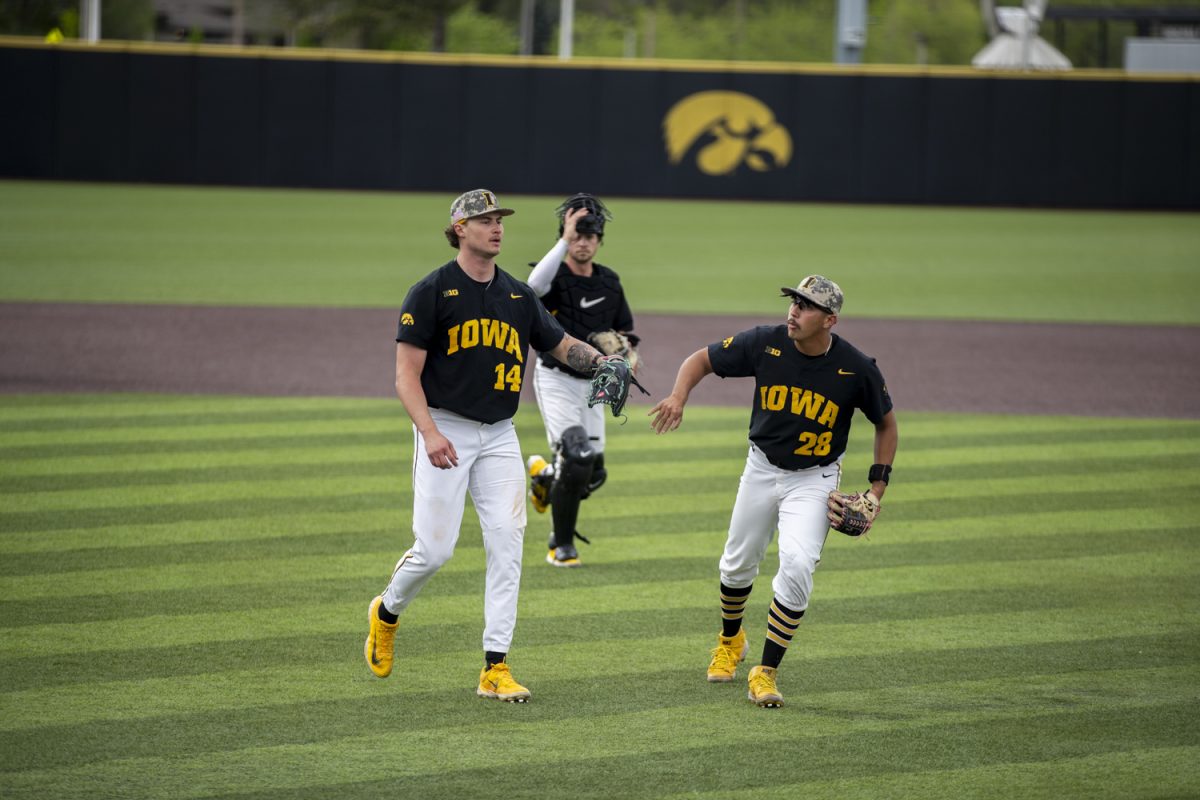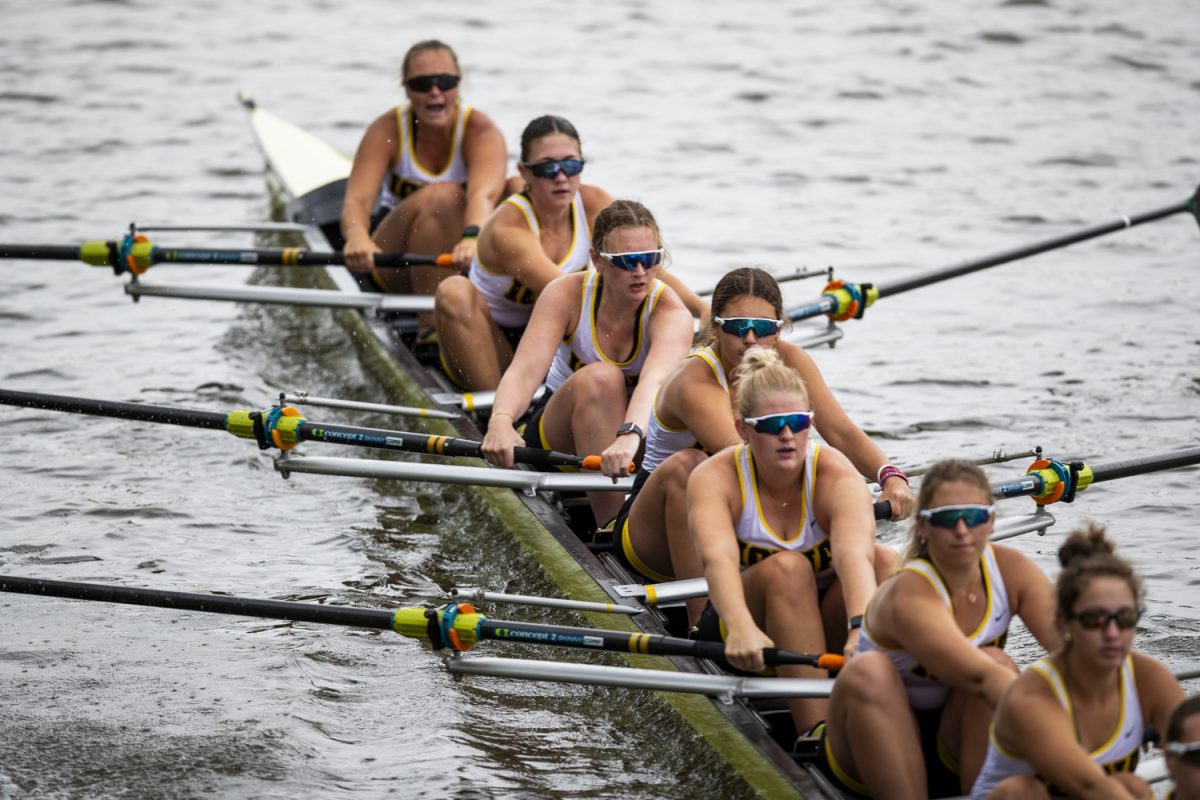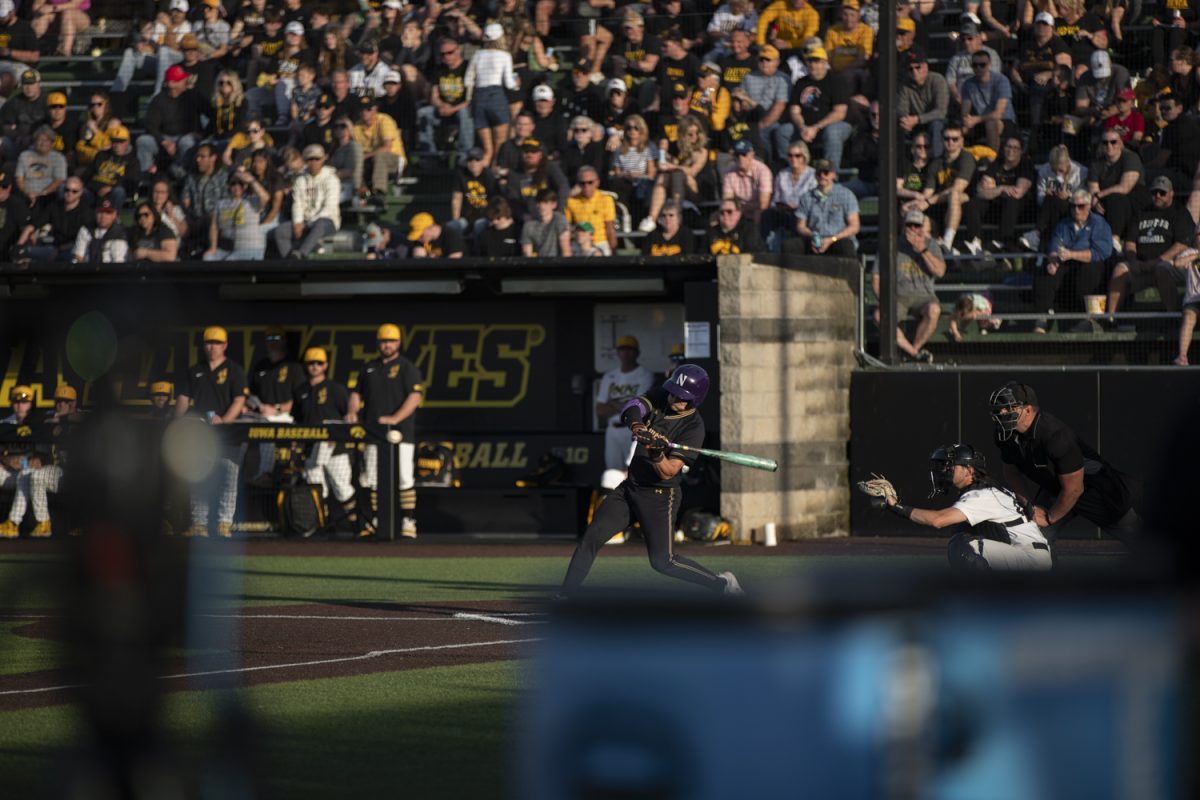The major-league game pits the Red Sox versus the Tigers. The venue, however, is not iconic Fenway Park or even Comerica Park. It’s Court Hill Park in Iowa City.
Court Hill is one field on which the Iowa City Recreation Division youth baseball program competes. They are no dugouts. No bleachers. No concession stands.
But there’s dirt, and grass, sometimes a tee, and soft rubber-cored baseballs, and that’s enough.
Numerous parents and children show up to see the kids play. The two teams from the major league division went head-to-head on Thursday.
There’s no Jim Leyland or Bobby Valentine — the parents are the coaches.
"We have parents who are coaches and parents that volunteer at practice," said Danielle Meirick, the city coordinator for the program. "It’s really hard when you have 10 kids and only a couple people to get them together."
The parents in the league embody the parents of everyday athletes.
"Our role is to be here and keep them organized," Tiger coach Wayne Riley said. "We help field balls and grab helmets. We’re here to do the dirty work, basically."
On one hand, the parents are coaches, but they also have other responsibilities: Driving their kids to and from practice, cheering them on, and bringing them treats to stay active. They do more for their players than Leyland or Valentine — the pro managers don’t tie shoes, open juice boxes, or wipe noses.
"They’re a huge part of making this possible," Meirick said.
While the parents are a big part of making sure games and practices happen, they are there for ultimately one reason: the kids.
"It’s [the camp] for the kids to have fun," Riley said. "It’s summertime, and it’s not meant to be serious competition. We try to teach them the fundamentals of baseball."
Keeping kids focused in practice can be tough. Having up to 10 5- and 6-year-old kids running around takes a lot of work. Eventually, however, the kids find the time in practice to not play with the dirt underneath the bench and to learn the basics of baseball.
"We try to help them improve their fundamentals by giving them examples," Red Sox coach Joerge Baock said. "In practice, we work on ground balls, how to field them, and how to throw properly. Also, we basically teach them how to hit."
Practice is focused on learning the basics, skills that are difficult for kids still developing motor control and coordination. Some kids may never play baseball again, others will keep the skills they learned at camp for the rest of their lives, and some will continue working on becoming a baseball player in the future.
When asked if he wanted to continue playing baseball, 6-year-old Edward Kenyon replied, "YES."
The parents work on teaching and the kids work on learning the game, but there is more to participating in the league. The kids are able to learn valuable lessons that they’ll be able to use at school, at home, or on future teams they’re apart of.
"They’re here to learn to play T-ball, but it’s so much more than that," Meirick said. "They’re making friendships along the way. They’re learning how to play as a team. It’s a fun way to get out their energy and for the parents to come out, too."






